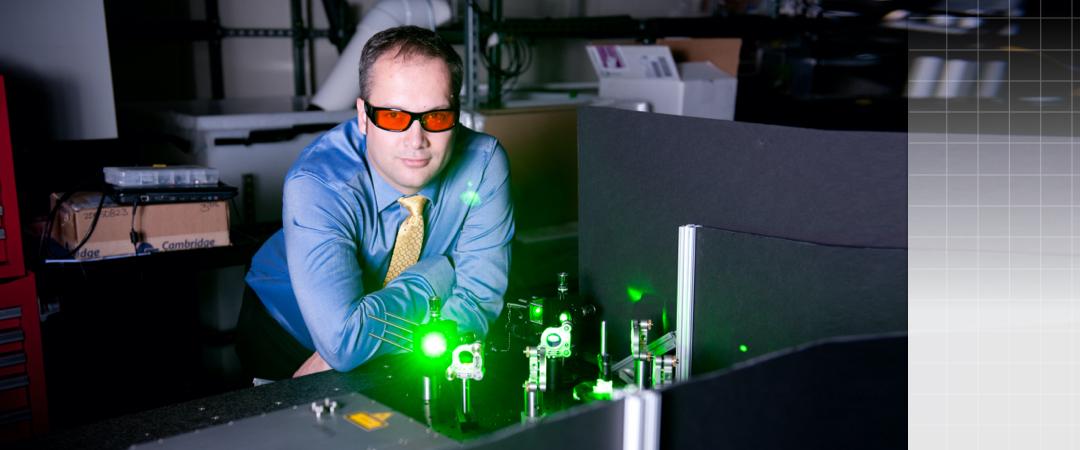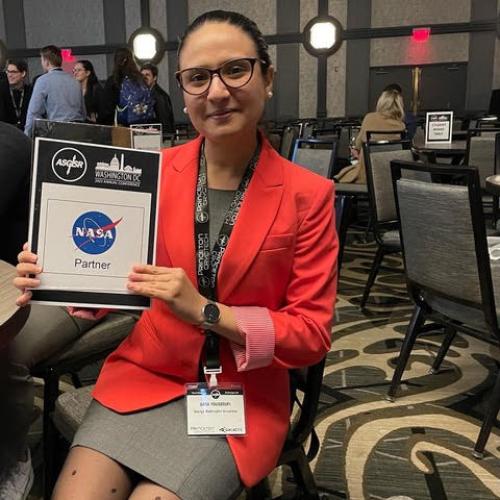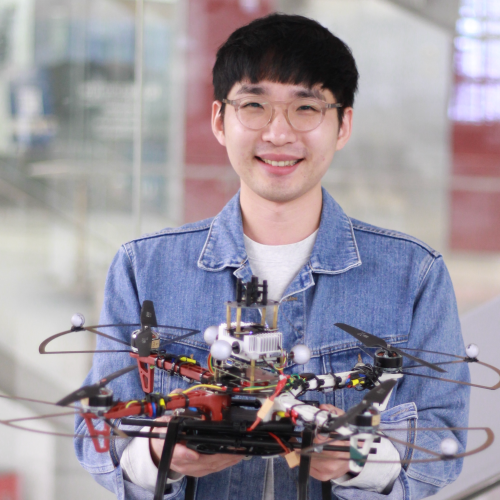Prospective Graduate Students
Prospective Graduate Students
Join our current graduate students who are working with our faculty in the Department of Mechanical and Aerospace Engineering to push the frontiers of research. Meet a few of our students and learn about the research they are doing.
Caroline (Zalud) Wild
Research Focus Area: Fluid mechanics/Biomedical engineering
Cardiovascular diseases are among today’s major health problems. Many of them are caused by the long term exposure of vascular cells to the stress produced by blood flow. My interdisciplinary research focuses on studying the blood flow in the regions of human arteries prone to build up a stenosis, the narrowing of a blood vessel. Through computational simulations, I aim to identify flow structures that expose the cells to damaging stresses and to gain knowledge about the interaction between fluid dynamics and biochemical cell responses.
Swastika Bera
Research focus: Fluid Dynamics
I am working on an NSF-funded project to understand the cohesive force characterization of marine aggregates. I analyse particle cohesion and their sticky gel-like characteristics which bridges the knowledge gap in understanding aggregate behavior against hydrodynamic resistance and physical properties. I am currently focussing on flow behavior in laminar flow tanks and conical funnel apparatus and experiment studies on Using Atomic Force Microscopy (AFM) to understand particle structure and how it affects cohesion. Our goal is to understand how the change of structure can affect the cohesion changes.
Leticia Oiwa
Research focus: Design and Manufacturing of Mechanical Engineering Systems
The efficiency of thermal and energy systems is greatly affected by the quality of materials used within them. Common manufacturing techniques for advanced materials are often wasteful and non-cost-effective. My research focuses on developing and improving manufacturing techniques such as laser powder bed fusion, fused filament fabrication, and direct ink writing for high-temperature and thermoelectric materials. Our goal is to fabricate high-quality materials that will improve thermal and energy systems.
Anmol Taploo
Research focus: Aerospace Engineering
TThe trade-off between coverage and spatial resolution in satellite imaging is crucial. Opting for greater coverage sacrifices resolution, leading to latency, limited bandwidth, weather susceptibility, and higher costs in geostationary earth orbits (GEO). Space debris from retired satellites poses a threat, especially with traditional propulsion systems. Self-neutralizing air-breathing plasma thrusters (SABPT) offer a solution, using air as a propellant, eliminating fuel tanks, and operating in very low earth orbits (VLEO) below 100 kilometers. SABPT generates thrust by harnessing atmospheric air to create plasma, ensuring debris naturally degrades upon reentry. It enables higher-resolution imaging, stable orbits, and improved communication. Funded by DARPA and Lockheed Martin, our patented technology features self-healing material, green energy use, and simple design, making VLEO platforms accessible for various applications, and enhancing US capabilities in satellite operations, defense, and reconnaissance missions.
Sara Youssoufi
Research focus: Computational Fluid Dynamics
Pool boiling is of particular importance in numerous applications, including space industry, nuclear reactors, and thermal packaging. My research focuses on studying the effect of subcooling and superheat on pool boiling under both earth gravity and microgravity (e.g. gravity at the international space station). I conducted high fidelity direct numerical simulations, using an in-house solver for Computational Fluid Dynamics, to elucidate the bubble dynamics associated with the heat flux trend. I tracked bubble formation as well as their properties, and I studied vorticity structures and velocity and turbulence statistics to have a better understanding of the fluid and the heat flux mechanisms. This research will help to design cooling systems with better energy and cost saving efficiencies.
Beomyeol (Ben) Yu
Research focus: Robotics, Mechatronics and Controls
Unmanned aerial vehicles (UAVs) have become indispensable tools for various applications due to their capacity to perform multiple tasks efficiently and safely, ranging from military reconnaissance to civilian applications such as aerial photography and disaster response. My research aims to enhance the autonomy of UAVs using artificial intelligence and machine learning. Specifically, I am developing deep reinforcement learning techniques that respect the underlying geometry and symmetry of the dynamics to improve safety, data efficiency, and robustness against discrepancies between simulation environments and the real world.
Learn more about our degree programs











